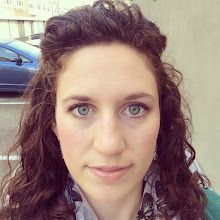Lewis and Clark's Dr. Eban Goodstein will be speaking this Wednesday night, May 21st on "Four Things You Can Do in the Next Five Minutes to Save the Planet" at the South Waterfront Discovery Center (0680 SW Bancroft, Portland, OR 97239). Dr. Goodstein's work investigates global warming's effect on the economy, and he has authored texts on the topics of the environment and the economy, including:
The Trade-Off Myth: Fact and Fiction about Jobs and the Environment
Fighting for Love in the Century of Extinction: How Passion and Politics Can Change the Future
articles published in the Scientific American, The New York Times, The Economist, The Chronicle of Higher Education, and USA Today.
If you end up attending the presentation, I would love to hear your thoughts. Where can I find access to more local events or resources highlighting actionable steps toward sustaining environmental and social resources?











